AiPrise
7 min read
September 29, 2025
Benefits of Identity Verification Software Explained
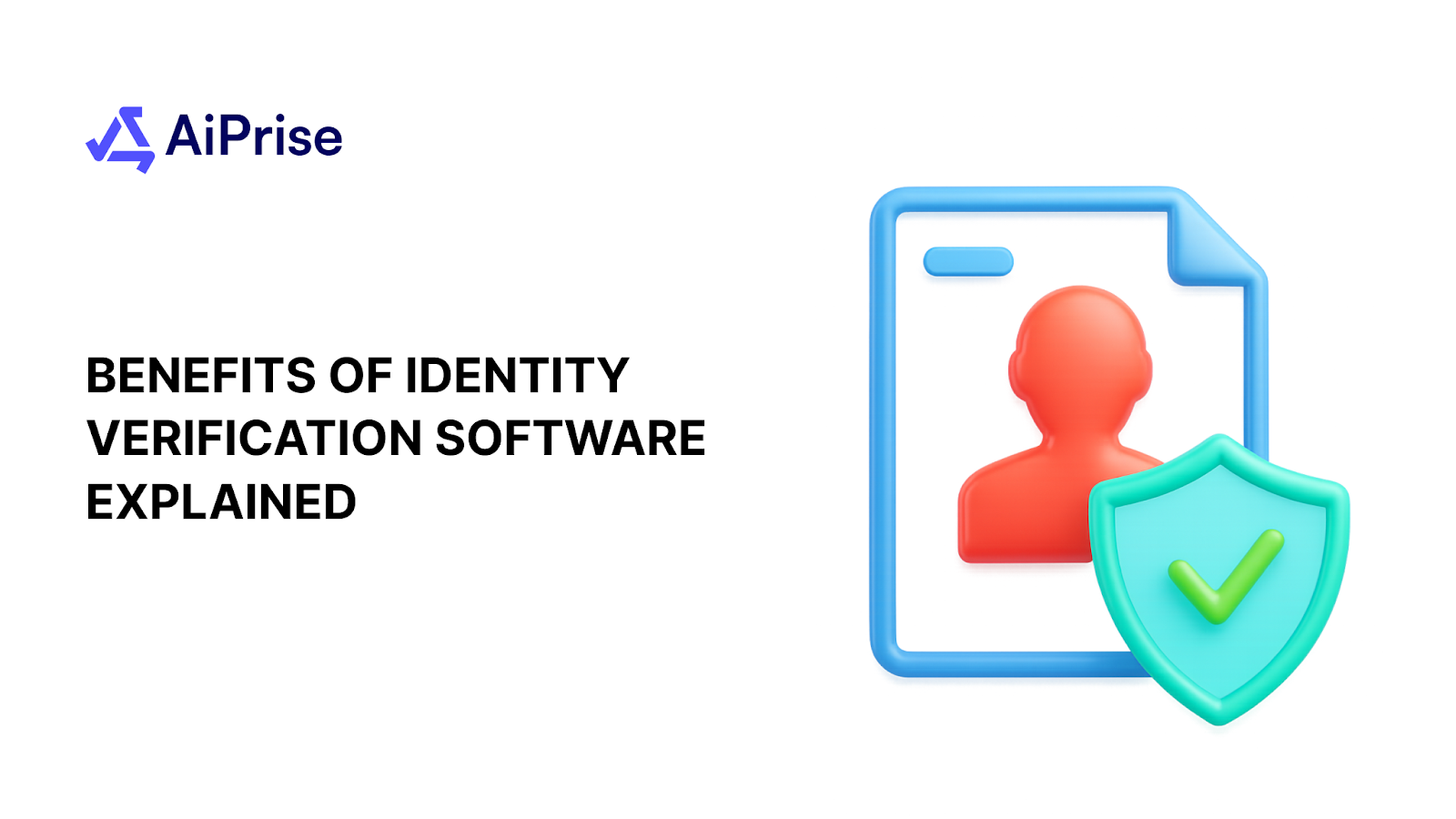
Key Takeaways










Have you ever paused to think about how businesses know for sure who you are online? From signing up for a subscription service to opening a bank account, identity verification has become an important part of our digital lives. But it’s not just about security, it’s about trust, efficiency, and seamless user experiences.
Identity verification software makes this process smarter and faster, ensuring that both businesses and their customers are protected. In this blog, you’ll learn exactly what identity verification software is, how it works, the types available, and why it’s becoming indispensable for organizations across industries.
Key Takeaways
- Identity verification software confirms users’ identities using documents, biometrics, and AI-based checks, automating a process that was traditionally manual.
- Types of verification include document checks, biometric scans, database cross-checks, knowledge-based questions, and multi-factor authentication.
- Key benefits: prevents fraud, ensures regulatory compliance, speeds up onboarding, improves data security, and enhances customer trust.
- How it works: collects user data, verifies documents, optionally checks biometrics, cross-checks databases, and approves or flags users quickly.
- Scalable and insightful: handles high verification volumes, reduces operational costs, and provides real-time analytics for smarter security decisions.
What is Identity Verification Software?
Identity verification software is a digital tool that confirms a person’s identity using a combination of personal data, official documents, and advanced technologies like biometrics or AI-based checks. Unlike traditional manual verification, software automates the process, reduces human errors, and ensures faster, more accurate results.
By integrating this software, businesses can verify customers in real time, protect sensitive data, and comply with regulations without slowing down the user experience. Importantly, it’s a safeguard that operates behind the scenes, giving both businesses and customers peace of mind.
The ability to quickly confirm identity is only the beginning. Next, let’s explore the different types of identity verification to understand how businesses choose the right approach.
Types of Identity Verification
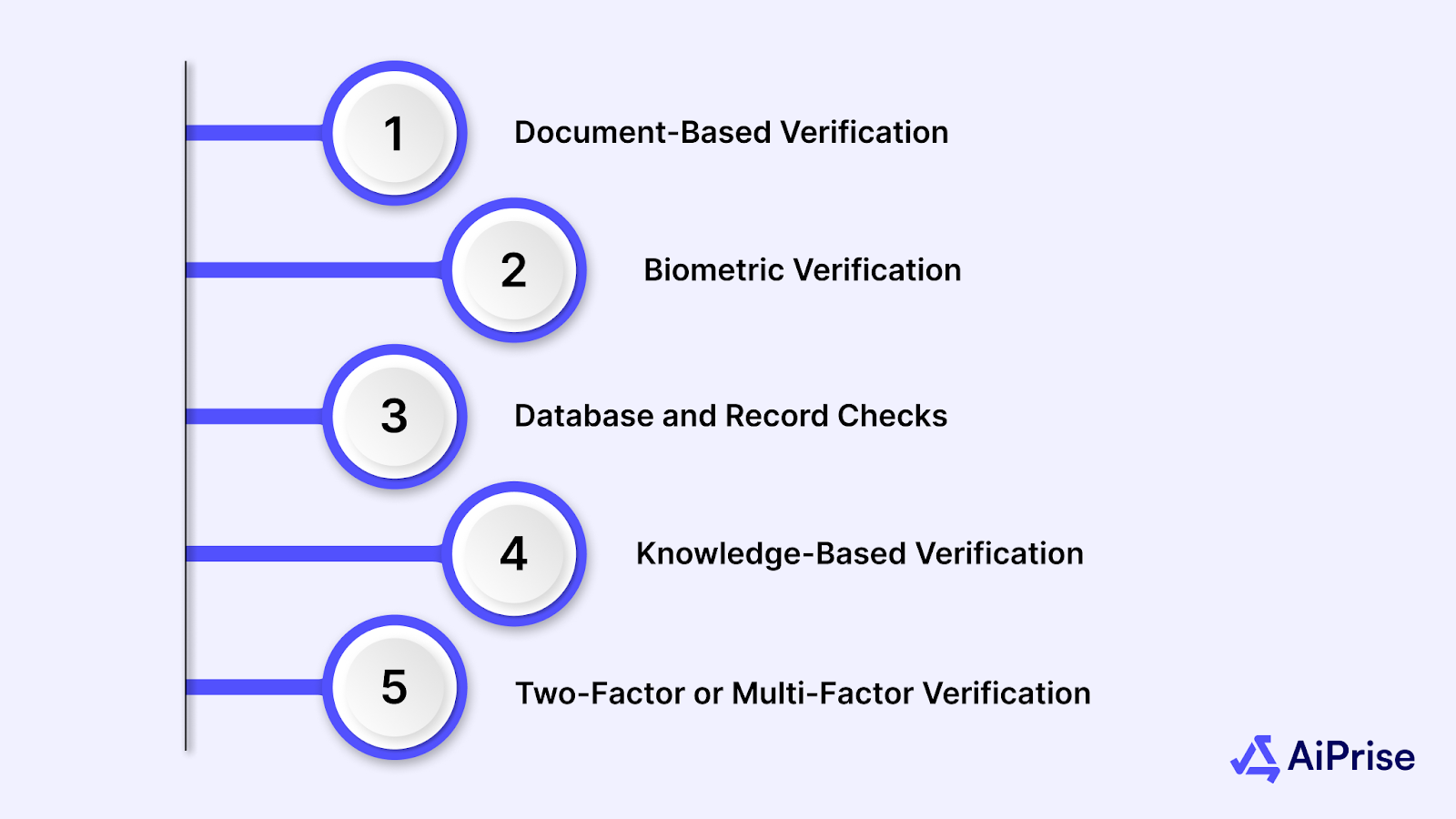
Identity verification isn’t a one-size-fits-all solution. Different methods suit different businesses depending on their risk levels, industry regulations, and customer needs. Here are the main types:
1. Document-Based Verification
Users submit official documents such as passports, driver’s licenses, or national ID cards. The software checks these documents for authenticity using features like holograms, barcodes, and watermarks.
2. Biometric Verification
This method uses physical traits like facial recognition, fingerprints, or iris scans to confirm identity. Biometric verification is increasingly common in banking, healthcare, and mobile apps due to its accuracy.
3. Database and Record Checks
The software cross-checks user information against trusted databases such as government records, credit bureaus, or watchlists. This step ensures the information provided is legitimate and up to date.
4. Knowledge-Based Verification (KBA)
KBA asks users to answer questions based on personal history, such as old addresses or loan details. While less common now, it is still used as an additional verification layer.
5. Two-Factor or Multi-Factor Verification (2FA/MFA)
This combines something the user knows (password), has (OTP or device), or is (biometric) to strengthen security.
These methods can be used individually or in combination, depending on the risk and compliance requirements. Now that you understand the types, let’s understand the real benefits of using identity verification software.
Also Read: How to Streamline Customer Verification for Fintech Companies?
Benefits of Identity Verification Software
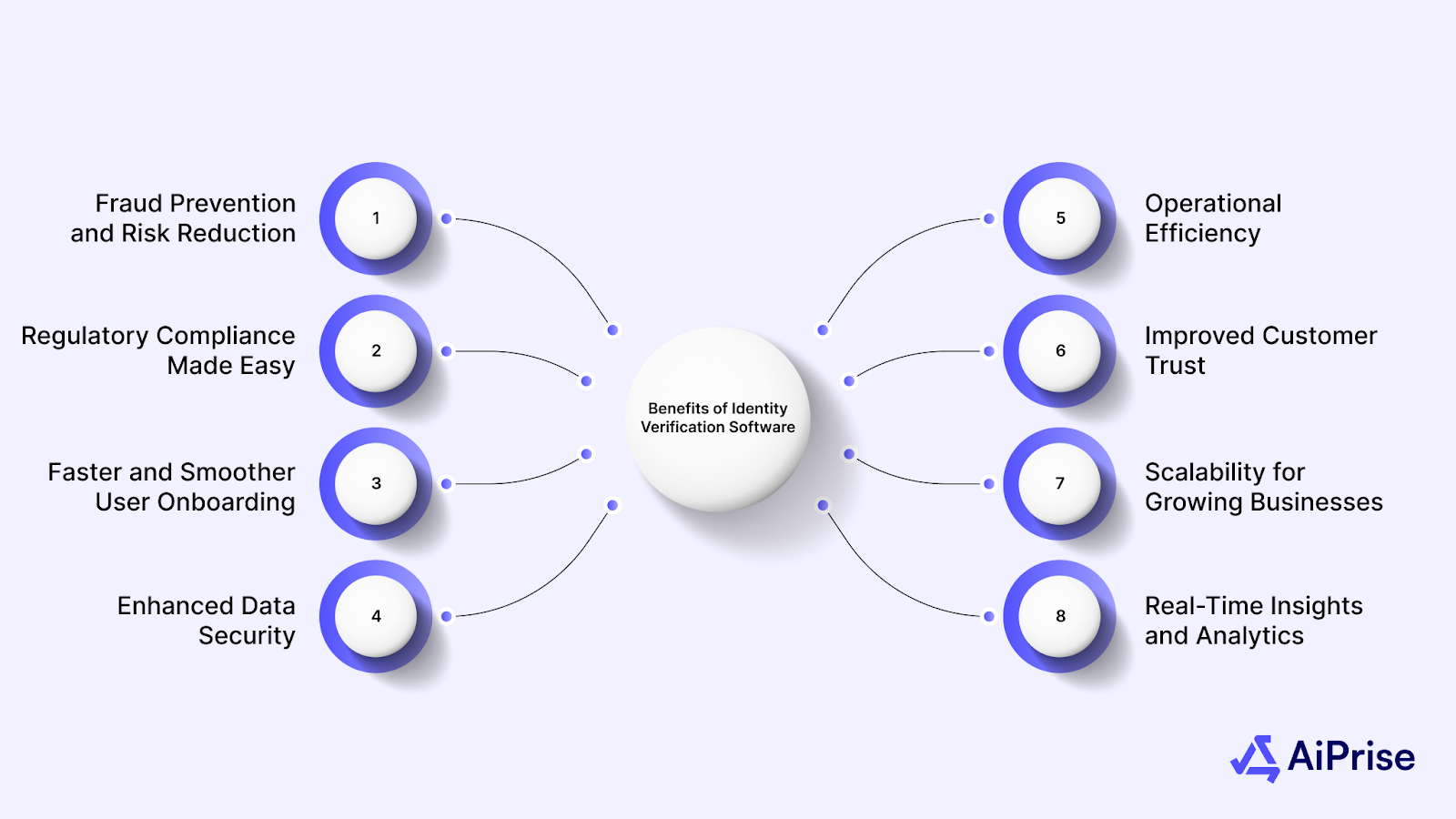
Identity verification software offers a wide range of advantages that go beyond simple security checks. From preventing fraud to improving customer experiences, this technology plays an important role in modern business operations. Here’s why implementing it can make a real difference:
1. Fraud Prevention and Risk Reduction
One of the most important benefits is the prevention of fraud. In 2023, the Identity Theft Resource Center (ITRC) tracked 3,205 data compromises, marking a 72% increase over the previous high in 2021. This alarming rise in data breaches highlights the growing threat of identity fraud.
Identity verification software ensures that the people interacting with your business are who they claim to be. By detecting fake IDs, stolen credentials, and suspicious activity in real time, businesses can avoid costly financial losses and reputational damage. This proactive approach to security also helps in identifying high-risk users before they can cause harm.
2. Regulatory Compliance Made Easy
Many industries, such as banking, finance, healthcare, and e-commerce, are required to comply with regulations like Know Your Customer (KYC), Anti-Money Laundering (AML), and data protection laws. Identity verification software simplifies compliance by automating document checks, storing audit-ready records, and generating verification reports.
This reduces the burden on your team while ensuring that you stay within legal requirements.
3. Faster and Smoother User Onboarding
Manual verification processes can be slow and cumbersome, leading to frustrated users who may abandon the process altogether. Automated identity verification speeds up onboarding by allowing users to submit documents and complete checks in minutes.
A smooth onboarding experience increases customer satisfaction, reduces drop-offs, and builds trust from the very first interaction.
4. Enhanced Data Security
Handling sensitive information manually increases the risk of data breaches and human error. Identity verification software encrypts user data, protects it from unauthorized access, and ensures that only authorized personnel can view it.
This secures your customer information and strengthens your business’s overall cybersecurity posture.
5. Operational Efficiency and Cost Savings
Automating identity verification reduces the workload on your employees, eliminating repetitive manual tasks. This frees up your team to focus on higher-value activities like customer support, marketing, and strategic planning. In addition, automated verification reduces errors, minimizes fraud-related losses, and saves costs associated with manual processing.
6. Improved Customer Trust and Loyalty
In today’s digital world, customers expect businesses to protect their personal information. By implementing identity verification software, you demonstrate that security is a priority. This builds trust and encourages customers to engage with your services confidently. Over time, consistent security and smooth verification processes can strengthen customer loyalty and boost your brand reputation.
7. Scalability for Growing Businesses
As your business grows, the number of identity checks required increases. Identity verification software can handle large volumes effortlessly, maintaining speed and accuracy even as your customer base expands. Unlike manual verification, which becomes slower and more error-prone with scale, automated solutions grow with your business seamlessly.
8. Real-Time Insights and Analytics
Modern identity verification tools often come with dashboards that provide insights into verification trends, user demographics, and risk patterns. These analytics can help businesses make informed decisions, refine their security policies, and spot emerging threats before they become serious issues.
In short, identity verification software doesn’t just protect your business, it strengthens your operations, improves the user experience, and builds long-term trust with customers. With these benefits in mind, it’s clear why more and more organizations are adopting automated identity verification solutions as a core part of their security strategy.
Also read: How to Identify Fake IDs?
How Does Identity Verification Software Work?
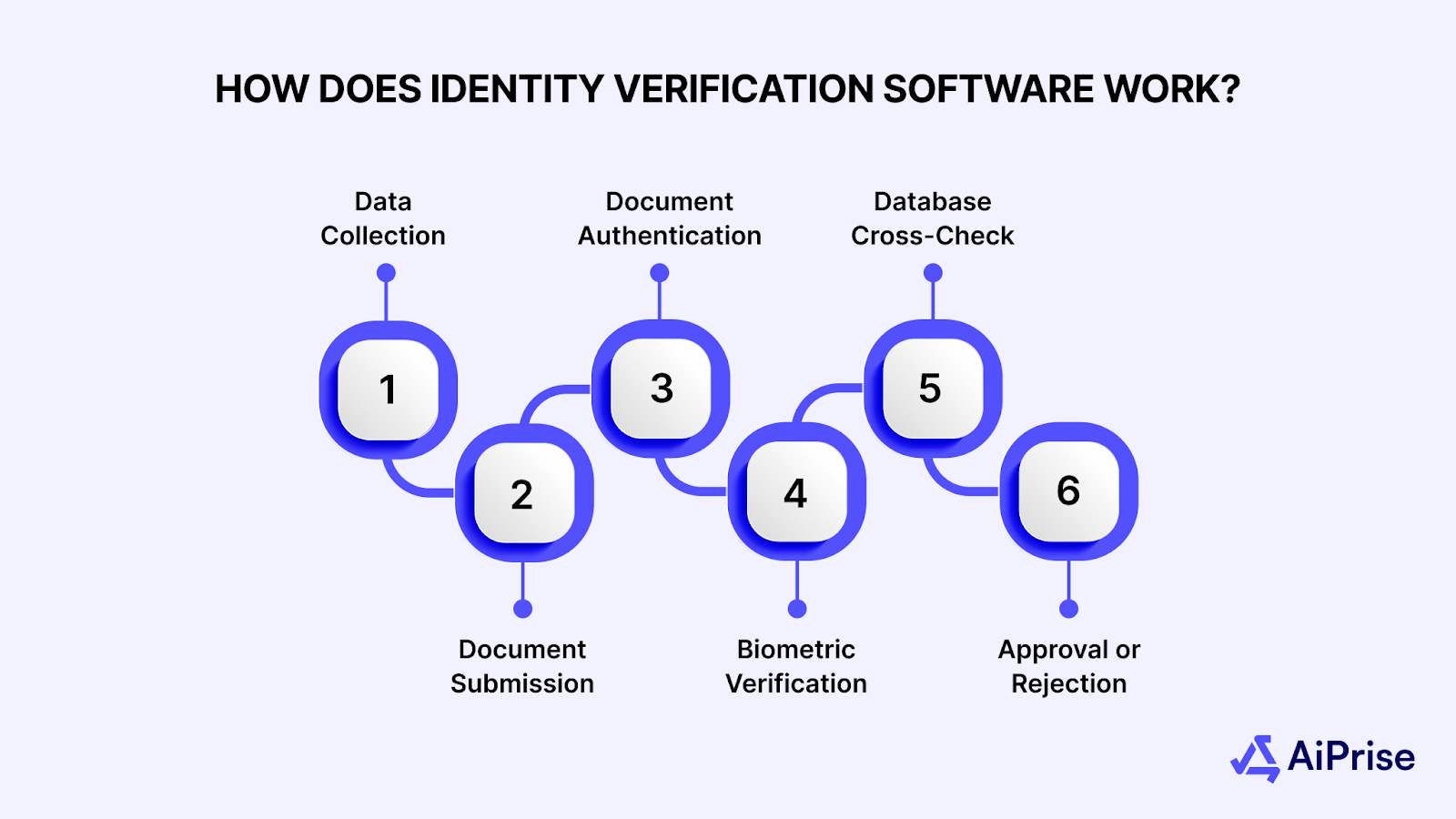
At its core, identity verification software follows a multi-step process to ensure accuracy and reliability. Here’s a simplified overview:
1. Data Collection
Users provide personal information such as name, date of birth, and ID numbers. Some systems also collect additional details like phone numbers or addresses.
2. Document Submission
Users submit an official document, which serves as proof of identity.
3. Document Authentication
Advanced software checks the document’s authenticity using security features and AI-driven algorithms to detect fake or tampered documents.
4. Biometric Verification (Optional)
A live photo or fingerprint scan is compared with the submitted document to ensure the user matches the ID.
5. Database Cross-Check
User details are verified against trusted databases to confirm legitimacy.
6. Approval or Rejection
Once all checks are completed, the system approves the user or flags discrepancies for further review.
This process happens quickly and efficiently, often within minutes, offering both security and convenience.
Facing challenges in verifying identities? Discover how AiPrise's advanced solutions can simplify your verification process and enhance security.
Transform Your Onboarding Experience
Don't let outdated verification methods slow you down. AiPrise offers a comprehensive platform that integrates document verification, face liveness detection, AML screening, and fraud prevention, all in one place. Improve your onboarding process, ensure compliance, and build trust with your users.
Experience the Difference with AiPrise
Final Thoughts
Identity verification software is more than just a security measure; it’s an important tool that protects your business, ensures regulatory compliance, and enhances the user experience. With the rise of digital interactions, relying on manual verification is no longer sufficient. Automating the process with reliable software gives you confidence that your users are who
AiPrise offers advanced identity verification solutions designed to safeguard businesses while providing a smooth, user-friendly experience. Ready to see how it works for your organization? Book a Demo with AiPrise today and experience secure, seamless, and scalable identity verification in action.
Frequently Asked Questions (FAQs)
1. Why is identity verification software important for businesses?
It prevents fraud, ensures compliance with regulations, protects sensitive data, and improves customer trust.
2. Can AI improve identity verification?
Yes. AI helps detect fake documents, perform biometric comparisons, and cross-check user data against trusted sources quickly and accurately.
3. Which industries benefit the most from identity verification software?
Finance, banking, e-commerce, healthcare, government services, and cryptocurrency platforms are some of the main users.
4. How long does identity verification take with software?
Verification can take a few minutes to a few hours, depending on the depth of checks and document authenticity.
5. Is identity verification software scalable?
Yes. Modern software can handle large volumes of verification requests without compromising speed or accuracy.
You might want to read these...

AiPrise’s data coverage and AI agents were the deciding factors for us. They’ve made our onboarding 80% faster. It is also a very intuitive platform.







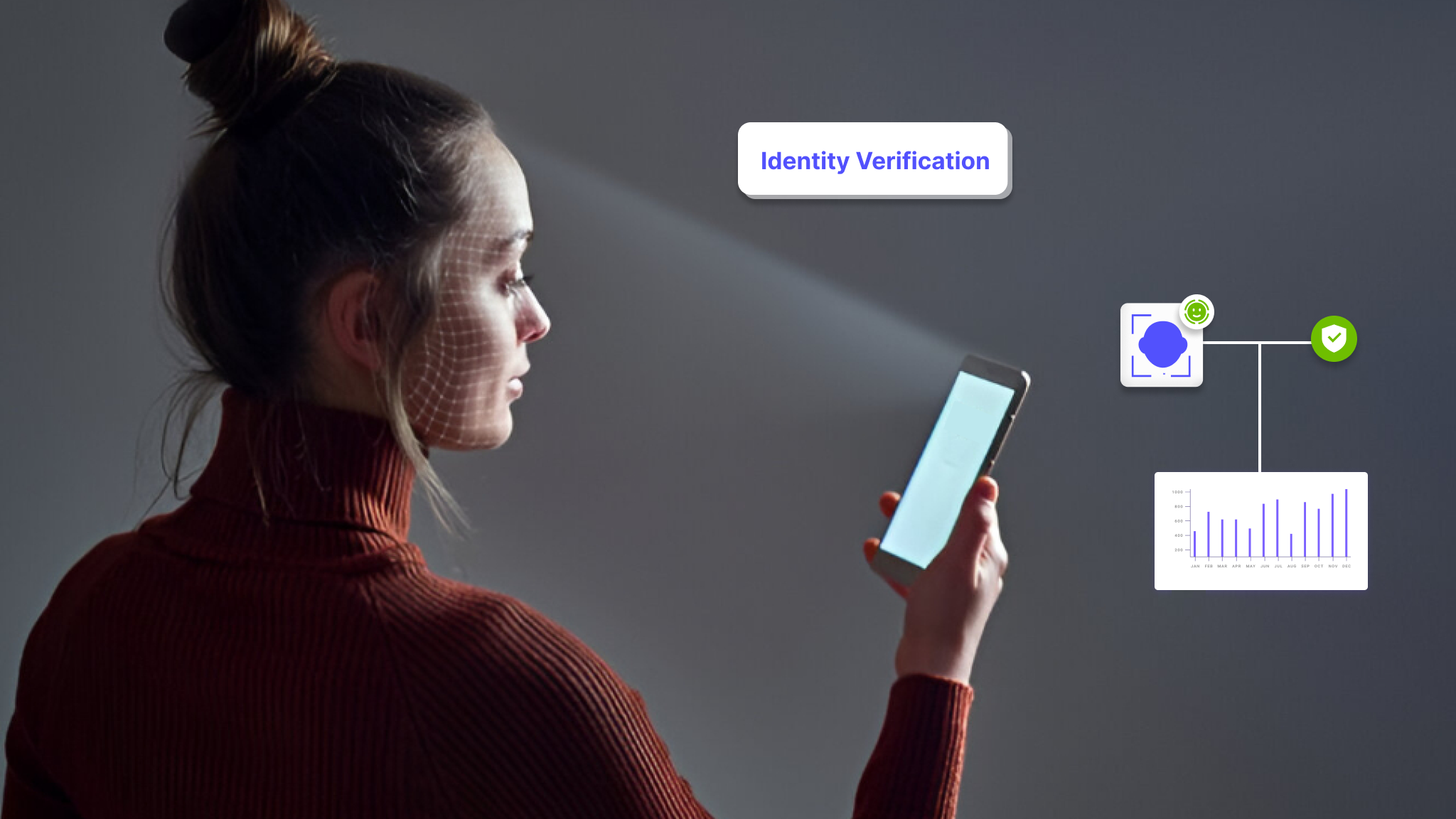





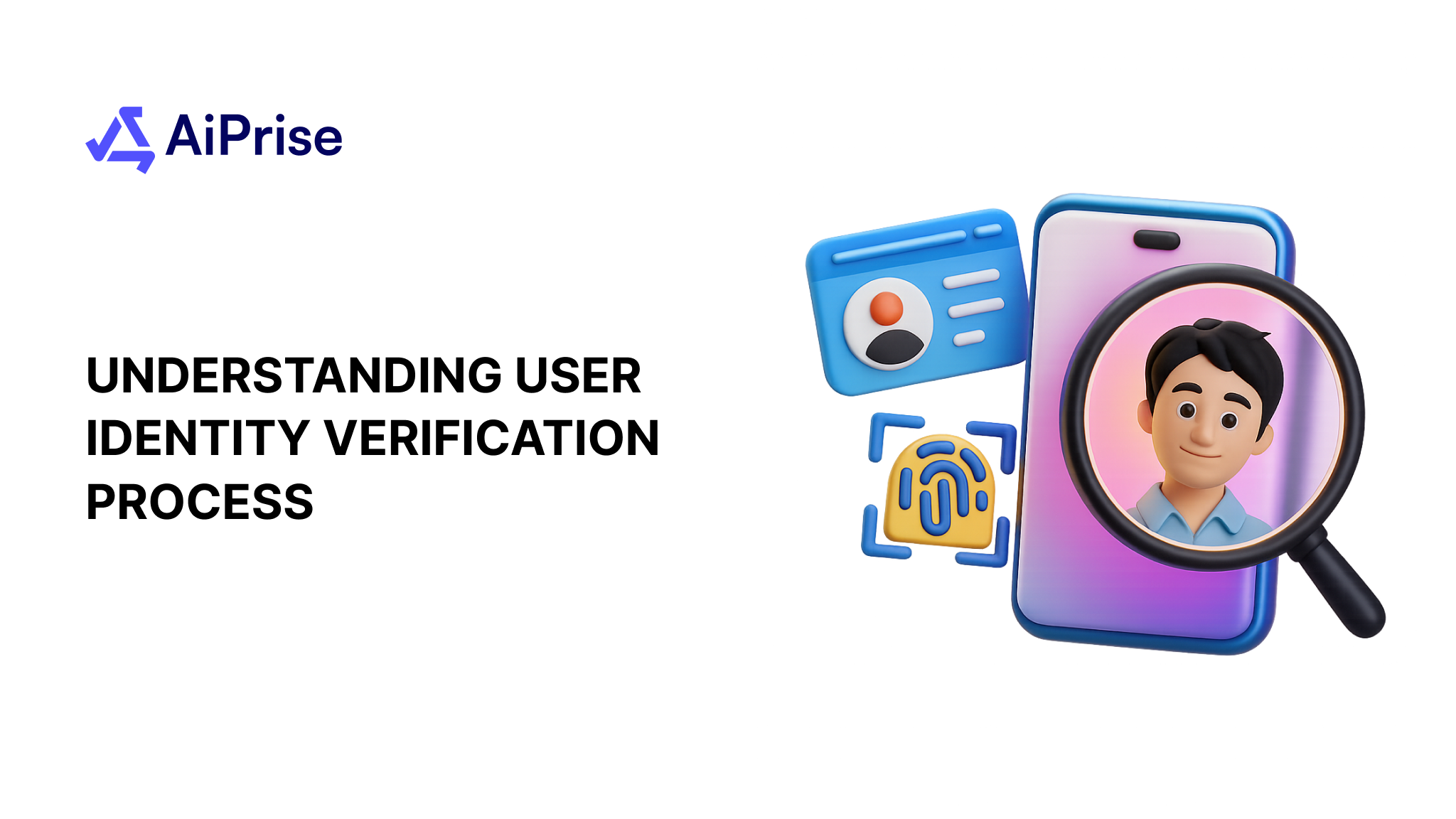
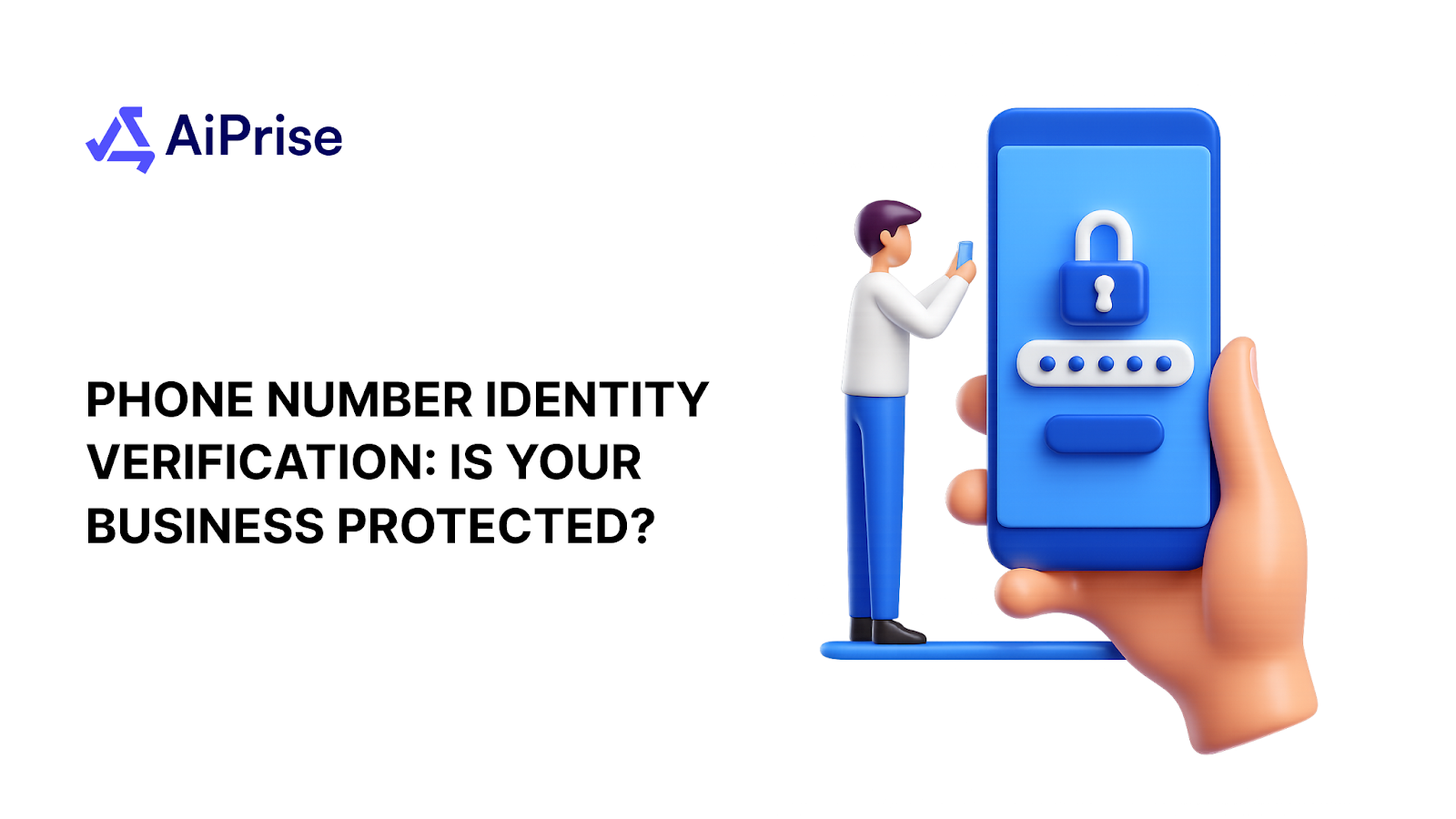
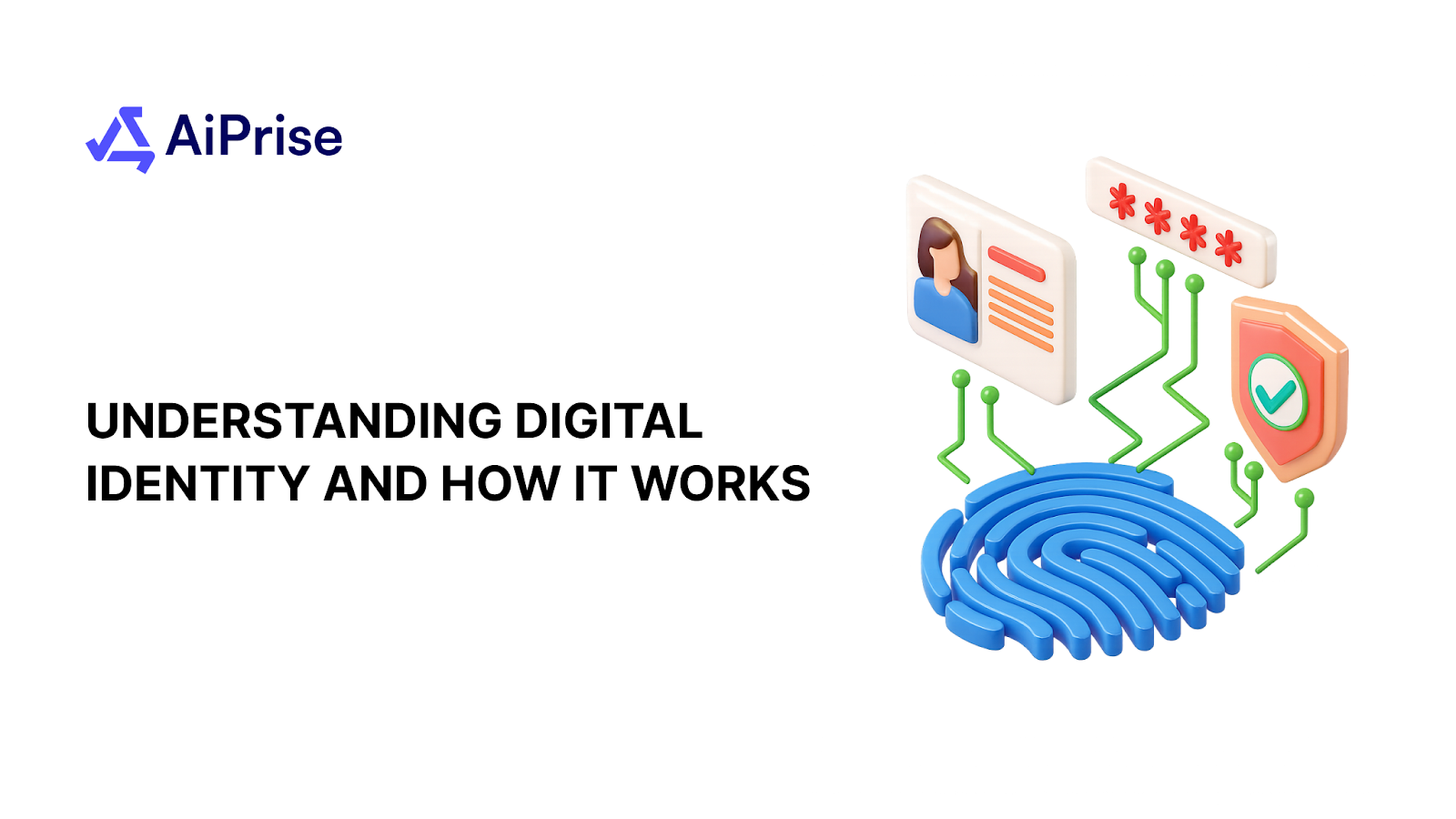
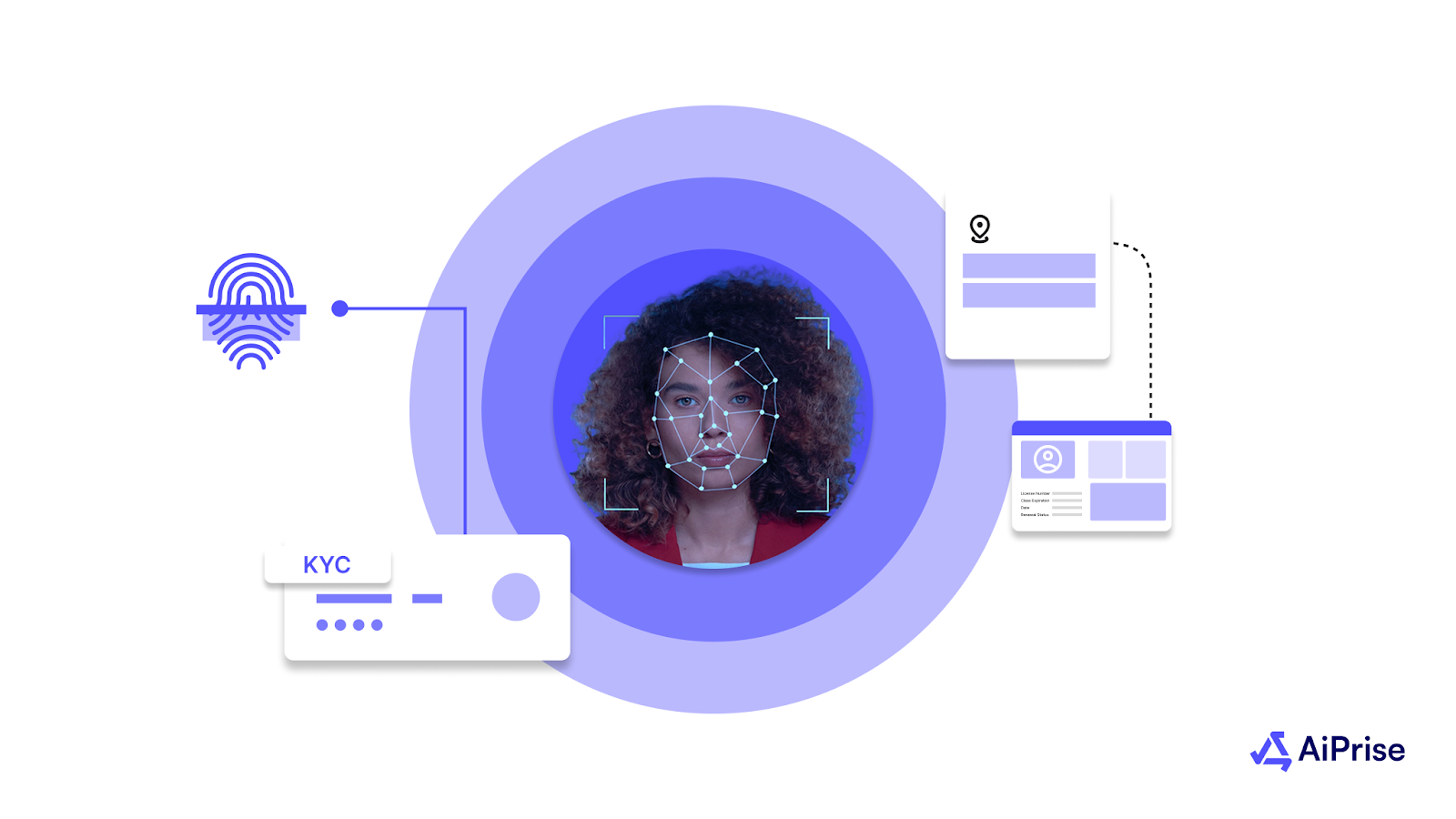
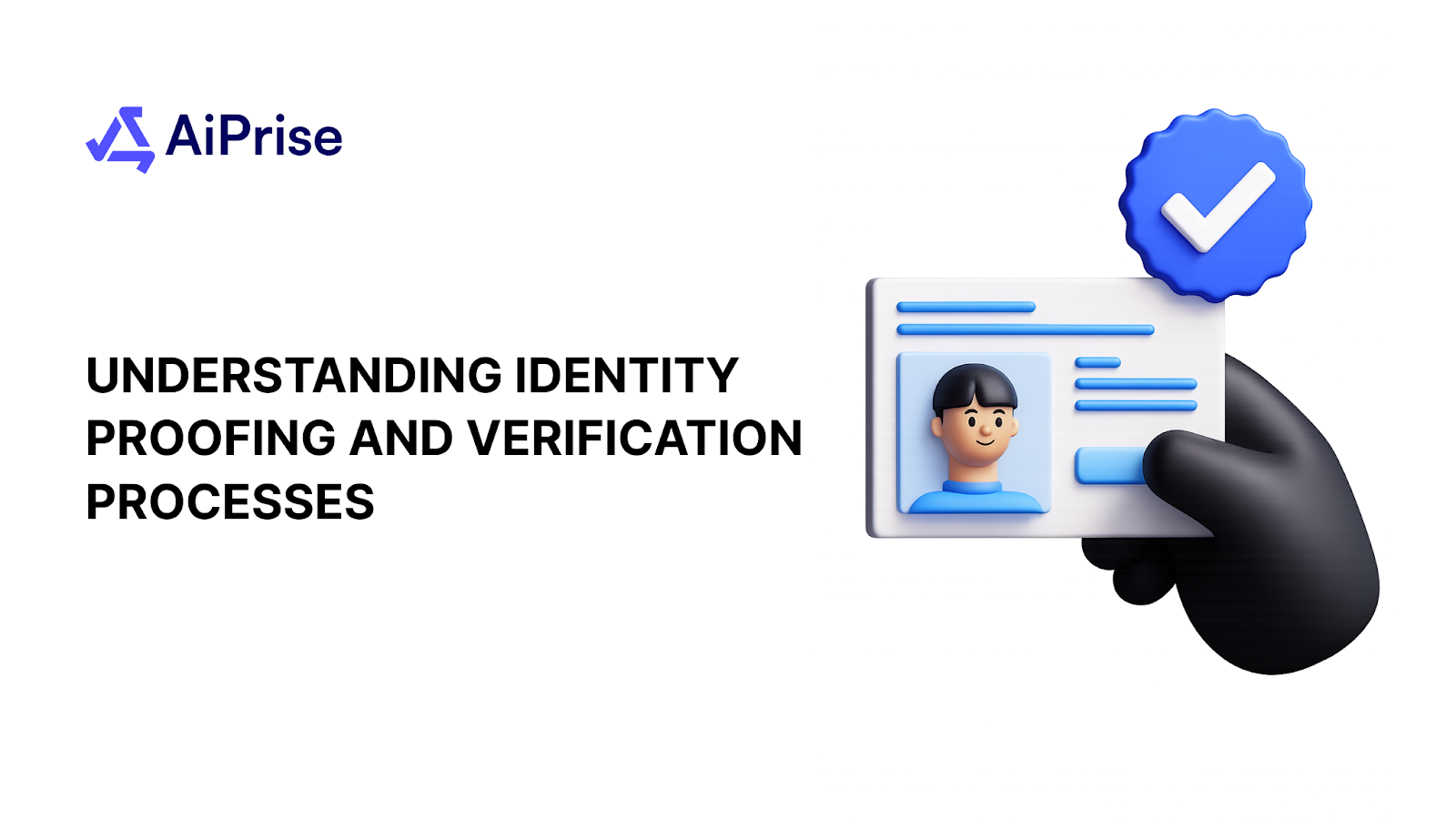
.png)


